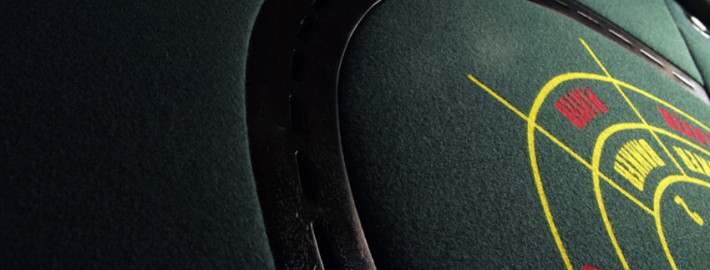Baccarat Basic Rules
Baccarat, or punto banco as it is more commonly known, is a card game of chance. It was first played as far back as the 15th century during the reign of King Charles VIII, with Italy and France both staking – pun intended – a claim to having invented the game.
If you see James Bond in a european online casino, it’s likely that he’s playing Baccarat. It’s a suave game, simple as that. It also involves the whole table in a collective effort to beat the evil banker, so it is a great social way of recreating ‘that’ scene in your favourite casino movie where everyone is screaming and shouting and hugging each other because they’ve all won £6.50.
Baccarat is usually played with 12-14 players at the table. There are only two initial bets available; the banker (Banco) or the player (Punto). Each player bets on one of these two options, and the banker bets (almost always on the banker obviously!) The ‘shoe’ – the deck of cards, usually six or eight decks – is passed from player to player, although players don’t have to deal a card; they can pass it onto the next player. The shoe stays with a player as long as the Banco wins. If the Punto wins, the shoe is passed on to the next player. Two hands are dealt. All the player has to do is bet on which hand will win, or if they will tie. Each hand consists of a minimum of two cards and a maximum of three.
The person dealing puts two cards face down under the shoe and gives the player with the biggest bet on Punto two cards face down. The Punto player looks at the cards and returns them to the player who is dealing. Then the player dealing turns over both pairs of cards.
Online blackjack pundits note how face cards and tens are all of zero value. An ace is worth one point, and all the other cards’ values correspond with the number on the card. Suits don’t matter. Only single digit values are used – any count that reaches a double digit loses the first digit e.g. 15 becomes 5 and 25 also becomes 5. The highest possible hand value is 9. A ‘Baccarat’ refers to anything with a value of zero e.g. Q64 because you knock the left digit from 20 to make 0. If a hand has a total of 8 or 9, then it is called a ‘natural’ and no more cards are dealt. If it is not a natural, then depending on the value of each hand, the casino dealer may instruct the player dealer to deal a third card. These are the rules on whether a third card is drawn:
Player’s third card rule
– If player or bank have a total of 8 or 9, no further cards are drawn
– If player’s total is 5 or less, the player draws a third card
– If the player does not draw a third card
Banker’s third card rule
– Bank’s total is 2 or less – bank draws a card no matter what the player’s third card is
3 – bank draws unless players’ third card was an 8
4 – bank draws unless players’ third card was 0,1,8 or 9
5 – bank draws if players’ third card was 4,5,6 or 7
6 – bank draws if player’s third card was 6 or 7
7 – bank stands
The hand with the highest count wins.



